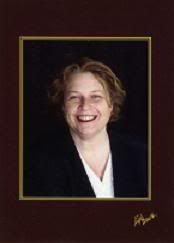
When I first reading and blogging last year I was struck by how often the phrase "Lex Orandi, Lex Credendi" came up. On certain website it's sometimes thrown around almost as a "well, SISTER SAID, so that ends the discussion." Z's blog seems especially prone to tossing this around like pennies before urchins.
Yesterday I made a point of reading Pius XII's encyclical Mediator Dei again. I've been methodically going through Jungmann's The Mass of the Roman Rite, and I decided to look up major references where I could.
So I was very much amused to read in the encyclical the following:
"46. On this subject We judge it Our duty to rectify an attitude with which you are doubtless familiar, Venerable Brethren. We refer to the error and fallacious reasoning of those who have claimed that the sacred liturgy is a kind of proving ground for the truths to be held of faith, meaning by this that the Church is obliged to declare such a doctrine sound when it is found to have produced fruits of piety and sanctity through the sacred rites of the liturgy, and to reject it otherwise. Hence the epigram, "Lex orandi, lex credendi" - the law for prayer is the law for faith.
47. But this is not what the Church teaches and enjoins. The worship she offers to God, all good and great, is a continuous profession of Catholic faith and a continuous exercise of hope and charity, as Augustine puts it tersely. "God is to be worshipped," he says, "by faith, hope and charity."[44] In the sacred liturgy we profess the Catholic faith explicitly and openly, not only by the celebration of the mysteries, and by offering the holy sacrifice and administering the sacraments, but also by saying or singing the credo or Symbol of the faith - it is indeed the sign and badge, as it were, of the Christian - along with other texts, and likewise by the reading of holy scripture, written under the inspiration of the Holy Ghost. The entire liturgy, therefore, has the Catholic faith for its content, inasmuch as it bears public witness to the faith of the Church."
Feel free to chat amongst yourselves



4 comments:
An interesting post, I've read it a few times now, but have to admit I still don't understand it, and am not clear what 'lex orandi, lex credendi' really means.
Is it somehow connected to the belief many people seem to have that the change from the old Latin Mass to the current Ordinary Form is largely responsible for the falling away of many Catholics (so that restoration of the Tridentine Mass will produce greater 'fruits of piety and sanctity')? Whereas 47 is saying that faith that comes first and the liturgy follows out of that, so that the liturgy is always a true expression of Catholic faith?
M.E. I think it's fairly obvious that prayers would have to grow out of the faith. Much as writings which became scripture came out of the faith believed. I.E. not everything written early on was scriptural (the canon of the bible wasn't settled til some time after the apostles) In otherwords Jesus didn't throw the NT down from the sky and say "good luck, y'all."
I don't buy the theory either that "it's all the NO fault" that people don't go to Mass like they used to.
What I personally would like to see are some statistics from between 64 when the NO came in and 68, and then after 68. ALSO it would be important to see the trends of Mass attendance BEFORE the NO. I.e. was it trending down or staying steady before that?
I would say if anything, my own impression at the time (though young) was that Humanae Vitae was what caused the downturn in Mass attendance.
I happen to agree with Humanae Vitae. Think though, regards those people who were lead to believe via prior reports that it was something that was going to be left up to the individual conscience.
Directly detrimental I think was the way the changes were implemented in that a lot of junky, half baked things were thrown into the liturgical practises, while long standing good practices were virtually thrown out. I can remember looking IN VAIN for benedictions in the 80s. Just for grins once I called a number of parishes to ask if they had them, EVER. Very slim pickings.
Stations of the cross still practiced, but May Crownings? days of recollection? Eucharistic adoration? Corpus Christi processions and the like? Oh, no...too "showy" too "Catholic" too "mercy me, let's not proudly show our selves to have different practices from the protestants."
Then the question also remains...even given all that, how many people going to Mass genuinely believed, or were doing it out of a mild social coercion in the way of "not wanting to get flack" for not conforming? did some go out of superstitious attraction, not really understanding the Mass and then when they found out what it was say "the heck with it?" I expect all who left had different reasons or combination of reasons.
Eye candy only takes you so far.
I don't particularly think penance services have helped, for that matter. Well meant, but it makes it too "Groupy." And it's a shame now that often there aren't more than one priest in a parish as there was before. One Priest has to carry so much of the load, and often caught between parishioners (of all different needs and stripes) the "powers that be" on the diocesan level (and some of these people can cause a real pain in the a$$) and often (sadly) the bishop many got there the "right way" a few too many got their by being "yes men" and kissing butt.
God Bless the men who do what's right instead of what's popular.
I'm not saying a priest should go out of his way by any means to make waves where none are needed (if it ain't broke, don't fix it) - but it's good to see the LM people trying to bring back some good practices all around. And I'm not necessarily talking about TLM itself - but the things that were tossed out with it (far too often) in the 60s and 70s.
My feeling on TLM is this: it is a rich treasure - but so as not to follow it as "a pretty show only" you really DO need to work at learning what it's about and the whys.
I know Pius also says you have to be generous in your expectations of what people in general can handle, but through a careful reading he seems to give the "gimmee" to the people not capable of learning more (and that's fine) but I think it behooves the intelligent to "do the work" and learn the Latin and not kneel there twiddling rosary beads during the consecration. [IMO may as well hang a sign on your neck and say "Hi, I'm really too dumb to bother learning to follow the latin.]
I've read a little of your blog, and you're still finding the faith, for now, just concentrate on learning the NO. You've got a lot on your plate as it is. It's worth studying, for sure, and a Catholic who doesn't study TLM is cheating himself, I think.
thanks for that - a very sensible, balanced viewpoint that's put a lot of things in context. And you're right of course, now is not the time for me to get hung up on the Latin Mass when there's so much else to get straightend out first.
ACK!!! "got THERE" not "got their" 50 lashes with a wet noodle.
Post a Comment